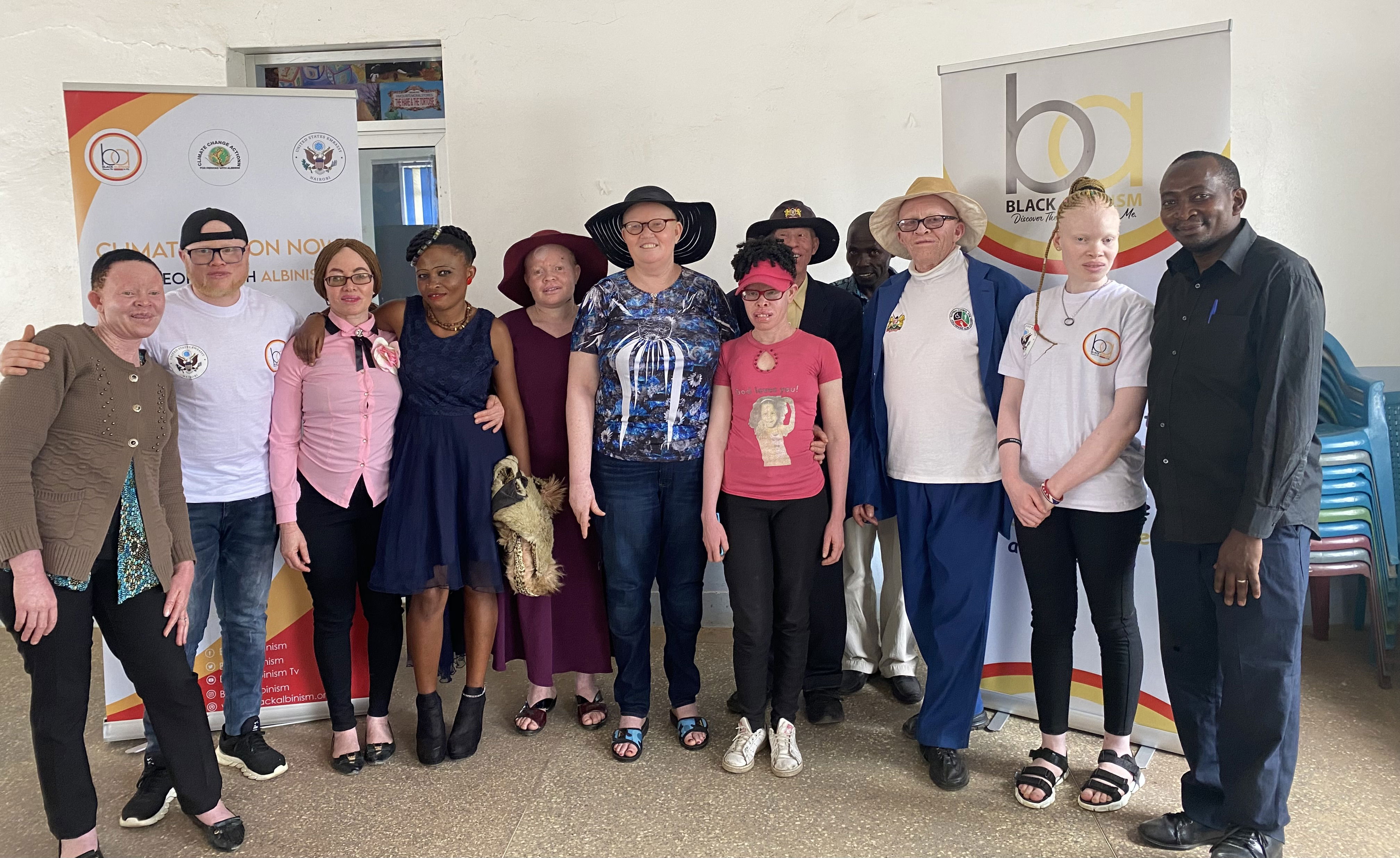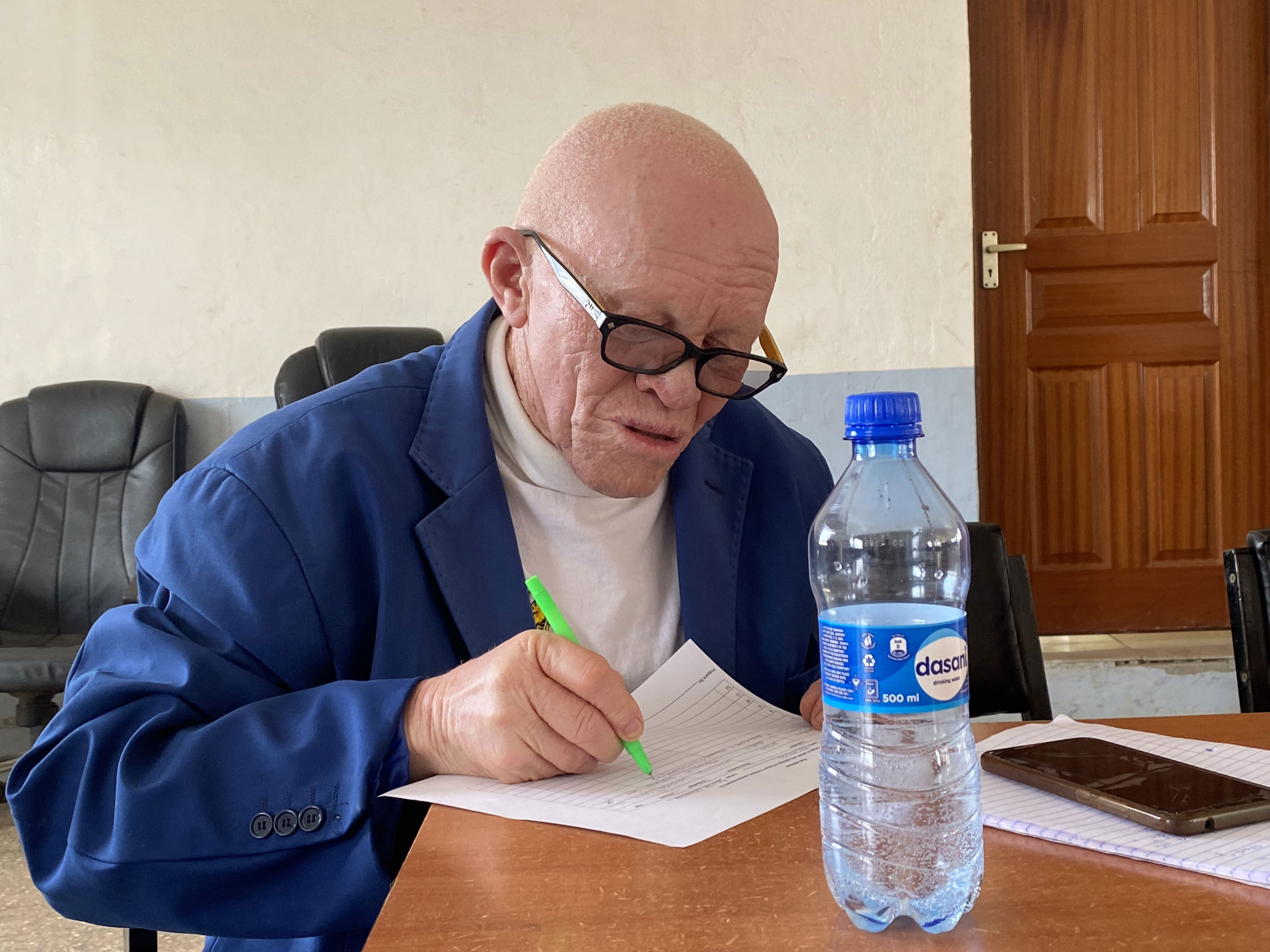Exploring the Connection Between Albinism and Climate Change: How People with Albinism are Affected by a Warming Planet.
The evidence for climate change is overwhelming and the consequences are far-reaching.According to the Intergovernmental Panel on Climate Change, global temperatures havealready risen by an average of 1.2°C since the Industrial Revolution. This warming trend ishaving a range of negative impacts on the planet and on human health, including increasedUV radiation and more extreme weather events. For people with albinism, who are alreadyat an increased risk of skin cancer due to their lack of melanin, these impacts can beespecially dangerous. If we don't take drastic action to reduce greenhouse gas emissions,temperatures are expected to rise by an additional 1.5°C by 2040, further increasing therisks faced by people with albinism and other vulnerable populations. The World HealthOrganization estimates that climate change is already responsible for over 250,000 deathsper year and that number is only expected to rise as temperatures continue to increase.

One solution to the potential impacts of climate change on people with albinism is to increase awareness about the issue, particularly in regions where people with albinism have been coping with harsh weather conditions for generations. In the Sahara, for example, people with albinism have long faced the challenges of high temperatures and intense UV radiation. As the planet continues to warm and these conditions become more extreme, it's important for people with albinism to understand the potential risks to their health and the steps they can take to protect themselves. By increasing awareness about the connections between albinism and climate change, we can empower people with albinism in the Sahara and other regions to take action to protect their own health and the health of their communities.
The Black albinism organizations, in partnership with the US Embassy in Nairobi, is implementing a project to assess the current level of knowledge about climate change and its effects on people with albinism in three counties in Kenya: Machakos, Kitui, and Kajiado. These counties are located in semi-arid and arid regions of the country, which may make them particularly vulnerable to the impacts of climate change and these are the focus areas.

Assessment of Knowledge Levels.
As part of the project to raise awareness about climate change and its effects on people with albinism in Machakos, Kitui, and Kajiado counties, surveys and focus groups will be conducted to assess the current level of knowledge about climate change and the risks it poses to people with albinism in these regions. This will help to identify any gaps in understanding and inform the development of targeted training and education programs.
Documentary Production.
To capture the experiences and perspectives of people with albinism in Machakos, Kitui, and Kajiado counties, national climate experts, international and national disability experts, a documentary film will be produced. The documentary will highlight the challenges faced by people with albinism in the face of climate change, what government agencies are doing to intervene, as well as the ways in which PWAs are working to protect themselves and their communities.
Training and Education Programs.
Based on the assessment of knowledge levels, targeted training and education programs will be developed to help raise the understanding of people with albinism and their communities including their parents and community healthcare workers about climate change and the risks it poses. This may include sharing information about the risks of UV radiation and extreme weather events, as well as the importance of taking precautions like wearing protective clothing and using sunscreen.

Community Resilience Building.
In addition to raising awareness about climate change, the project will also focus on supporting the development of adaptive and resilient communities that can withstand the challenges of a changing climate. This may include promoting sustainable farming practices, supporting the use of renewable energy sources, and engaging in activities such as tree planting to help communities become more resilient in the face of climate change.
To maximize the project's reach and impact, the organization will utilize social media to share updates, resources, and information about the project and climate change's impacts on people with albinism. This will include sharing the results of the knowledge level assessment, documentary highlights, and training and education program details. By using social media, the organization can engage a wider audience across Kenya and beyond in real-time and inspire action to combat climate change.
Conclusion
Join Black albinism and the US Embassy in Nairobi in the fight against climate change and its impacts on people with albinism. By supporting our project, you can help raise awareness about the risks posed by a warming planet and empower communities to take action to protect themselves and their families. Whether you donate time, money, or resources, your support will make a difference in the lives of people with albinism and help to create a more sustainable and equitable future for all. Together, we can make a real impact in the fight against climate change. Take action now and make your voice heard